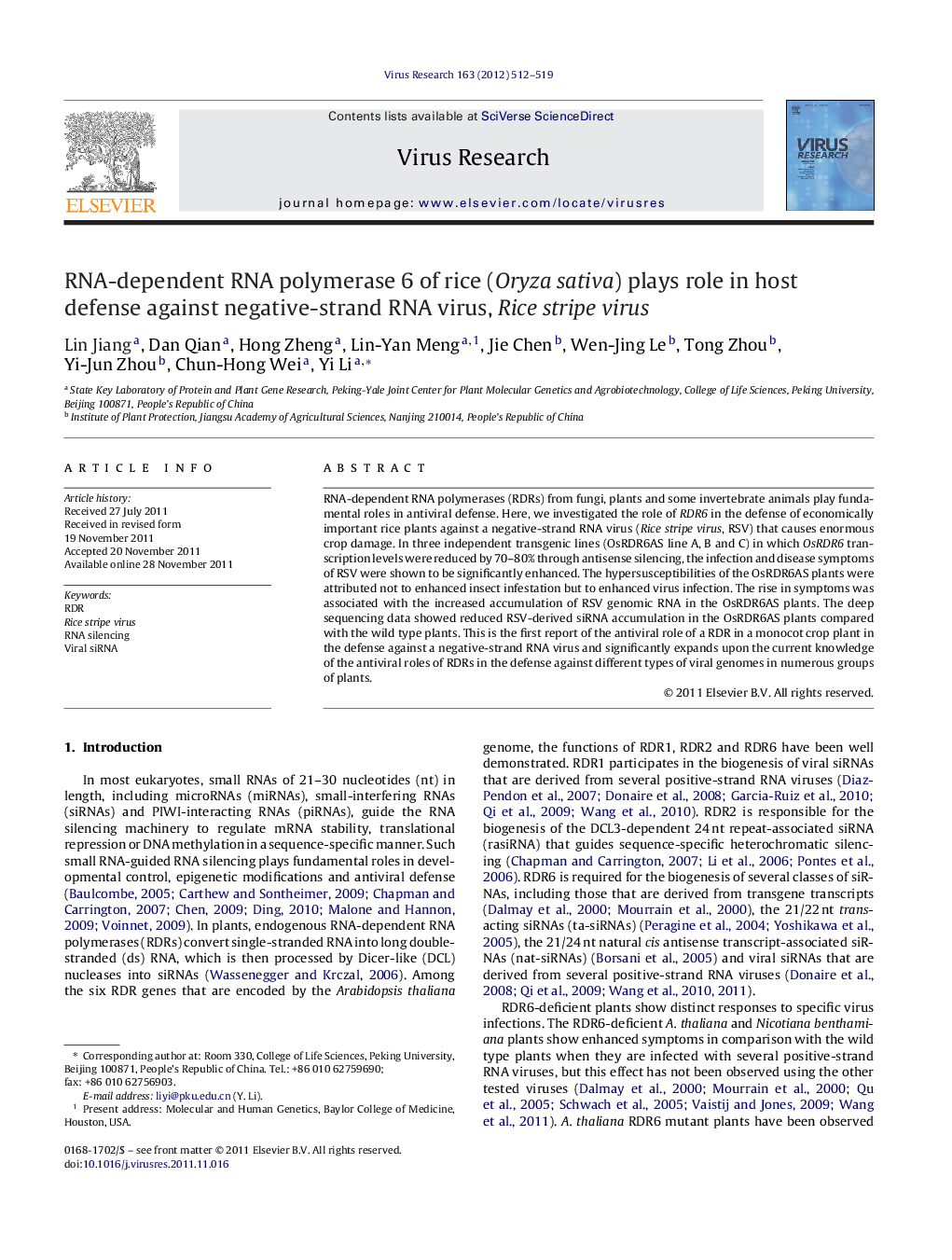| Article ID | Journal | Published Year | Pages | File Type |
|---|---|---|---|---|
| 3428897 | Virus Research | 2012 | 8 Pages |
RNA-dependent RNA polymerases (RDRs) from fungi, plants and some invertebrate animals play fundamental roles in antiviral defense. Here, we investigated the role of RDR6 in the defense of economically important rice plants against a negative-strand RNA virus (Rice stripe virus, RSV) that causes enormous crop damage. In three independent transgenic lines (OsRDR6AS line A, B and C) in which OsRDR6 transcription levels were reduced by 70–80% through antisense silencing, the infection and disease symptoms of RSV were shown to be significantly enhanced. The hypersusceptibilities of the OsRDR6AS plants were attributed not to enhanced insect infestation but to enhanced virus infection. The rise in symptoms was associated with the increased accumulation of RSV genomic RNA in the OsRDR6AS plants. The deep sequencing data showed reduced RSV-derived siRNA accumulation in the OsRDR6AS plants compared with the wild type plants. This is the first report of the antiviral role of a RDR in a monocot crop plant in the defense against a negative-strand RNA virus and significantly expands upon the current knowledge of the antiviral roles of RDRs in the defense against different types of viral genomes in numerous groups of plants.
► Transcript level of OsRDR6 was reduced by antisense method in rice. ► Reduced OsRDR6 levels led to boosted RSV infection of rice. ► Reduced OsRDR6 levels inhibited the accumulation of RSV-derived siRNAs. ► Antiviral role of RDR6 in a monocot crop against a negative-strand virus was established.
